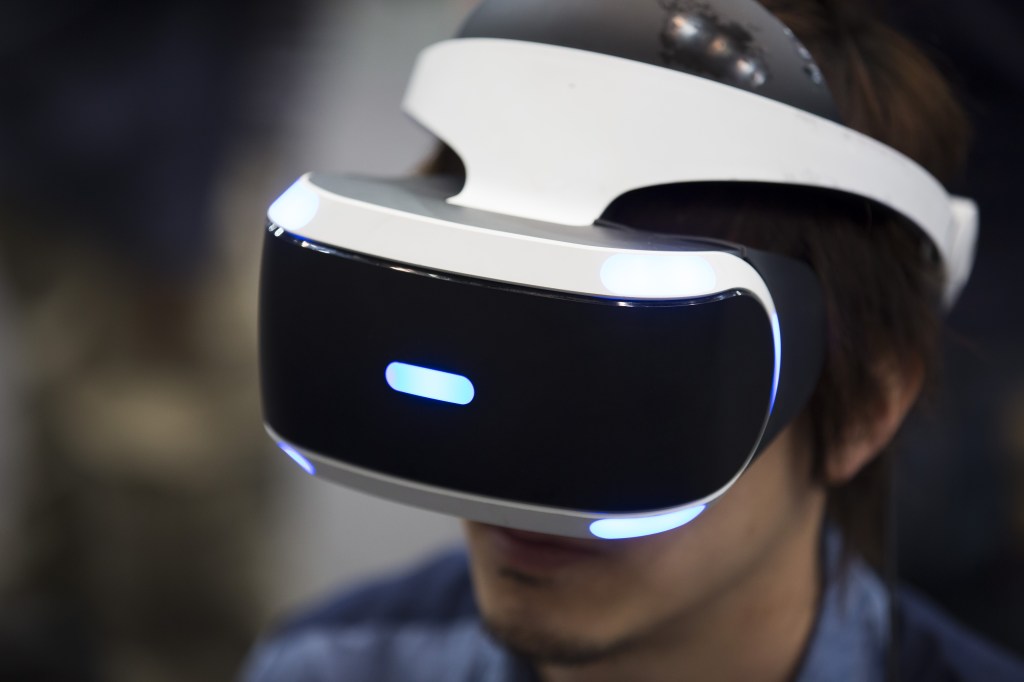Ian Hetherington
The original PlayStation console, launched when I was the managing director of Sony Computer Entertainment for Europe, shook the gaming world. The 3D environment was unfamiliar to gamers, and some in the industry at large were initially reluctant to adopt such a new technology. But with time, 3D gaming became the standard of video games, and 2D games began to be considered rigid and archaic. Consumers purchased PlayStation at record rates, buying 100 million units, and blew out its Nintendo and Sega Saturn competition.
As VR becomes a force in the gaming world (and other sectors), with Google and Facebook making enthusiastic pushes in its innovation, I can’t help but draw the evident parallels between the emergence of 3D-console gaming and quasi-nascent VR. Though some remain skeptical about VR and its likelihood of widespread use, it will become a widely adopted technology that can in turn drive adoption of other technologies, just like 3D-gaming technology did.
Like 3D gaming catalyzed the million-plus purchases of PlayStation — and later Xbox and other 3D-optimized consoles — VR can play a significant role in incentivizing consumers to upgrade their mobile devices and/or operating systems. Specifically, VR’s capabilities can entice consumers to update their smartphones, the same way 3D gaming incentivized consumers to update their gaming consoles.
It’s no secret that Google’s mobile devices have plateaued in their upgrade appeal. In May 2016, just 35.6 percent of Android devices were running Android 5.0 to 5.1 Lollipop, which was released in 2014. What’s more, only 7.5 percent of Android devices are running Android 6.0 Marshmallow, the latest version of the operating system.
Despite, or maybe because of, these disappointing metrics, Google is rolling out the Android N, its next phone and tablet operating system. VR has the potential to drive adoption rates of Android N, and Google is tapping into this potential with the recent announcement of Daydream’s mobile capabilities in the Google I/O keynote. VR could even be the forcing function for users to adopt 4K smartphones, which I believe is the future of mobile technology.
Along with leveraging VR capabilities to help with Android adoption rates, VR can also be an important factor in convincing people to choose Android over the iPhone in the first place. Although there are rumors that Apple is covertly investing in a VR View-Master headset that may work with the iPhone, we’re not really sure, and it’s unlikely consumers will actively hold out for this.
With that said, companies like Google shouldn’t jump the gun in assuming that all consumers will want to upgrade immediately because of VR. VR is still perceived by many consumers as an impressive technology once removed. The pattern of new technology on the macro level starts like clothing in a fashion runway show — exciting to admire but separate from the flow of everyday life. Using 3D gaming as a fitting model, any new technology field matures by being brought to market first as a fringe item observed by the masses and used solely by the die-hard tech enthusiasts, and then it builds into something more.
Right now, VR is in that observational stage necessary to the cycle that I witnessed for 3D gaming while at Sony. Concrete consumer uses cases are the next step to promote adoption and integration into everyday life as the collective becomes accustomed to entirely immersive VR experiences.
Another key factor in the technology integration cycle is the innovating parties. Currently, tech giants like Google and Facebook have made the biggest bets on VR, and much of the news about the emerging technology circulates around these two behemoths. As VR ripens, other creators will establish their products and uses for VR.
This “build it and they will come” pattern has established itself in many technology cycles; if we make VR an ecosystem attractive to developers, the industry will thrive on its own. In the months and years following PlayStation’s reveal, Sony discovered that though it could develop hardware and games exclusively in-house, independent video game designers were just as important, and a healthy competition between the two stimulated further innovation and creativity.
Facebook and Google’s vision of VR, and VR’s most known applications, are heavily consumer and gaming focused. However, enterprise VR is becoming an important vertical that will only continue to grow in relevance, rather than remain untapped. Enterprise VR/AR is already a prosperous alcove, with innovator Meta boasting 1,000 enterprise organizations among its clientele.
Outside of gaming, enterprise VR/AR will help individuals and organizations find immediate value in the technology. As opposed to seeing VR/AR as a separate entity, VCs largely view it as solving problems in existing sectors. Qualcomm Ventures’ managing director Jason Ball says “AR/VR is the new UX/UI for everything, but it will take time.” The funding environment is focused on Solve for X, with VR/AR as capabilities that can enhance the solution. To me, this means that enterprise/industrial use cases are where the money is/will be invested.
Much like we’ve seen 3D capabilities unfold, VR will make room for third-party organizations to find their niche, whether that be consumer-facing or siloed to the enterprise. Powered by innovation, companies large and small will carve out their own space and offerings within the technology to make its applications broader.
VR has great potential even beyond consumer-facing services, and will be implemented in all types of industries. Though it’s currently admired at a distance by most consumers and organizations, the cycle of technology tells us that adoption is not far off.































Comment